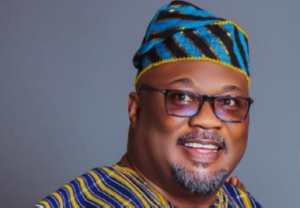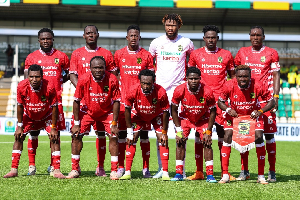The Economic Intelligence Unit has described the country's fiscal state as a "mess" that must be tackled head-on.
EIU's Country Director Robert Ward, speaking at The Economist's Ghana Investment Summit yesterday, said “election-year spending continues to be a key cause to the country's economic blues”.
"There's an election coming up in 2016 and as all governments do, the current administration will get jittery and start giving hand-outs. To avoid that, they must gain control over the fiscal policy. They need to sort out this fiscal mess; everything comes down to public finance management," he added.
The IMF in a report cautioned Ghana over its “ballooning” wage bill, which it said if untamed will increase the country's debt to levels that pose a risk to its transformation agenda.
Since implementation of the single spine salary structure, the annual public wage bill has shot up from the region of around GH¢1.7billion to GH¢9billion as of 2012, and is projected to rise to GH¢11billion by year close.
The country’s deficit has been above 5 percent in all but one year since 2006. It peaked twice in the election years 2008 and 2012, ballooning to 8.5 percent and 11.8 percent of GDP respectively.
The fallout of this deficit surge in election years is that interest or debt-service costs have increased sharply soon after. Between 2006 and 2007 interest spending plummeted from 16.9 percent of tax revenue to 12.7 percent, but spiked to 15.8 percent in 2008, 22.2 percent in 2009 and 22.9 percent in 2010.
In 2011, when the deficit shrank to 4 percent of GDP, interest cost narrowed to 16.5 percent of tax revenue. It has however started to rise again with the sharp spike in the 2012 deficit: it hit 19.5 percent of tax revenue last year and 33.4 percent in the first eight months of 2013.
“The fiscal situation has deteriorated quiet rapidly over the last couple of years and it is incumbent on government to get grips with that; once it does that, it will bring some great macroeconomic stability. “The debt stock is very high by the standards of a country at the stage of development like Ghana.
The budget deficit is not where the country had envisaged. There are a lot of policy decisions that need to be taken to cut spending further to boost revenue before you can get the budget deficit down,” he added.
The stock of public debt increased to GH¢39.1billion (43.9% of GDP) as at the end of June 2013, from GH¢35.1billion in December 2012. Out of the total public debt stock, the domestic component amounted to GH¢20.9billion compared to GH¢18.5billion in December 2012. External debt stock also stood at US$9.3billion up from US$8.8billion over the same period.
Mr. Ward stated that the “next few years are going to be critical because elections are coming up, which will create more difficulties in terms of policies because they will become politicised.”
Government, he said, must concentrate on the financial sector while the education and manufacturing sectors must be made key priorities.
Business News of Wednesday, 30 October 2013
Source: B&FT













